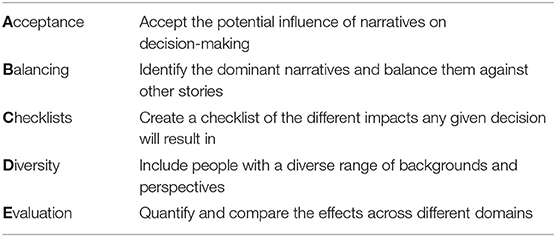Introduction
Self-empowerment is a process of gaining control over one’s life, beliefs, and behaviors. A critical aspect of this empowerment is the ability to shape one’s personal narrative—the story we tell ourselves about who we are and where we are going. Rooted in narrative psychology, this perspective suggests that individuals construct meaning through personal stories, which in turn shape their identities, actions, and overall psychological well-being (McAdams, 2006). By consciously crafting and reframing these narratives, individuals can foster resilience, enhance self-esteem, and develop a greater sense of purpose.
Read More- Ways to Develop Mental Health
Narrative Psychology
Narrative psychology explores how personal stories shape human identity and cognition. According to McAdams (1993), self-narratives serve as frameworks through which individuals interpret past experiences, navigate present challenges, and envision future possibilities. These narratives are not static; they evolve in response to life events and self-reflection.
Restorying is a therapeutic and psychological process in which individuals rewrite or reshape their personal narratives to foster healing, growth, and empowerment. This technique, rooted in narrative therapy, allows individuals to reinterpret past experiences, challenge limiting beliefs, and construct more positive and meaningful life stories (White & Epston, 1990).
By shifting the focus from victimhood to agency or from failure to growth, restorying enables individuals to see themselves as active participants in their own development. Research suggests that individuals who engage in restorying experience increased resilience, improved mental well-being, and a greater sense of purpose (Neimeyer, 2006).
Key themes in narrative psychology that contribute to psychological well-being include:
-
Agency: The extent to which an individual perceives control over their life circumstances. Individuals with high agency in their narratives view themselves as active participants in their growth and decision-making (McAdams & Pals, 2006).
-
Redemption: The ability to extract positive meaning from negative experiences. Those who incorporate redemption into their stories tend to exhibit higher levels of resilience and optimism (Adler et al., 2015).

Reframing Negative Experiences
One of the most effective ways to take control of one’s narrative is through cognitive reframing—rethinking an event or situation to change its meaning. Research suggests that individuals who reinterpret setbacks as opportunities for growth experience greater psychological resilience (Tedeschi & Calhoun, 2004). For example, rather than viewing a job loss as a personal failure, an individual can frame it as an opportunity to pursue a more fulfilling career path.

Challenging Limiting Beliefs
Limiting beliefs, often internalized through past experiences or societal expectations, can negatively impact self-perception. Identifying and challenging these beliefs is crucial for narrative reconstruction. Cognitive-behavioral therapy (CBT) techniques, such as cognitive restructuring, have been shown to help individuals replace self-defeating narratives with more adaptive ones (Beck, 2011). By shifting from statements like “I am not good enough” to “I am capable of learning and growing,” individuals can foster a healthier self-concept.
Crafting a Future-Oriented Narrative
A compelling aspect of self-empowerment is the ability to project a positive future narrative. According to Oyserman and Markus (1990), individuals who develop “possible selves”—mental representations of their ideal future—are more likely to set and achieve personal goals. By visualizing success and aligning one’s actions with desired outcomes, individuals can take proactive steps toward self-actualization.
Narrative Therapy and Psychological Growth
Narrative therapy, developed by White and Epston (1990), emphasizes the power of storytelling in therapeutic settings. This approach helps individuals externalize problems, view them as separate from their identity, and rewrite their life stories in more empowering ways. Studies indicate that narrative therapy can be particularly effective in addressing trauma, depression, and self-esteem issues (Neimeyer, 2006).

Conclusion
Taking control of one’s narrative is a transformative process that fosters self-empowerment, resilience, and personal growth. By integrating themes of agency and redemption, reframing negative experiences, challenging limiting beliefs, and envisioning a positive future, individuals can actively shape their identities and well-being. Narrative psychology and therapeutic approaches offer valuable insights and strategies for rewriting personal stories in ways that promote mental health and fulfillment.
References
Adler, J. M., Lodi-Smith, J., Philippe, F. L., & Houle, I. (2015). The incremental validity of narrative identity in predicting well-being: A review of the empirical literature. Personality and Social Psychology Review, 20(2), 142-175.
Beck, A. T. (2011). Cognitive therapy: Basics and beyond (2nd ed.). Guilford Press.
McAdams, D. P. (1993). The stories we live by: Personal myths and the making of the self. Guilford Press.
McAdams, D. P., & Pals, J. L. (2006). A new Big Five: Fundamental principles for an integrative science of personality. American Psychologist, 61(3), 204-217.
Neimeyer, R. A. (2006). Narrative therapies: Theories and interventions. American Psychological Association.
Oyserman, D., & Markus, H. R. (1990). Possible selves and delinquency. Journal of Personality and Social Psychology, 59(1), 112-125.
Tedeschi, R. G., & Calhoun, L. G. (2004). Posttraumatic growth: Conceptual foundations and empirical evidence. Psychological Inquiry, 15(1), 1-18.
White, M., & Epston, D. (1990). Narrative means to therapeutic ends. Norton.
Subscribe to PsychUniverse
Get the latest updates and insights.
Join 3,044 other subscribers!
Niwlikar, B. A. (2025, April 2). Take Control of Your Narrative- 2 Important Ways Restorying is Important. PsychUniverse. https://psychuniverse.com/take-control-of-your-narrative/



